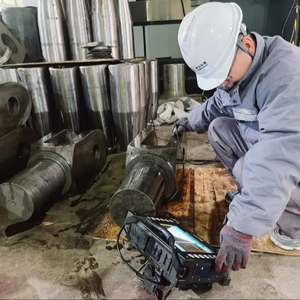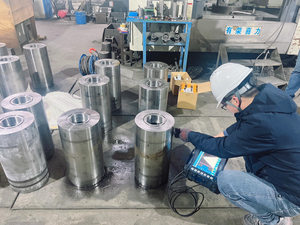(1797 products available)
































































































































































































Ultrasonic testing equipment is an essential tool in the field of non-destructive testing (NDT), particularly for inspecting welds. This sophisticated technology utilizes high-frequency sound waves to detect internal flaws or to characterize materials. Such equipment is pivotal in ensuring the integrity of welds in various industries, including automotive, aerospace, and manufacturing.
There are several types of ultrasonic testing (UT) machines, each designed to meet specific industry needs. From portable flaw detectors to complex automated systems, these devices cater to a broad spectrum of applications. The versatility of ultrasonic weld inspection equipment allows for its use in fields requiring meticulous quality control, ranging from intricate electronic components to robust structural welds.
The construction of ultrasonic NDT equipment involves materials that promote precision and durability. Advanced composites and metals are typically used to house sensitive electronic components. The transducers, which are the heart of these systems, are crafted from piezoelectric materials that convert electrical signals into ultrasonic waves and vice versa.
The primary advantage of using ultrasonic equipment for testing welds is its ability to detect subsurface defects without causing damage to the materials. This method is highly sensitive and can identify flaws that are not visible to the naked eye. Additionally, ultrasonic testing is valuable for its speed and the immediate availability of results, facilitating efficient quality assurance processes.
In-depth knowledge of ultrasonic test equipment is crucial for professionals in the quality testing field. The equipment's settings and operation must be mastered to accurately interpret the results. Proper understanding ensures that the ultrasonic weld flaw detection process is both reliable and effective in maintaining the highest standards of safety and quality.
Selecting the appropriate ultrasonic testing device is a critical decision that depends on the specific requirements of the task at hand. Factors such as the material of the components, the type of welds, and the expected service conditions of the product play a significant role in determining the most suitable ultrasonic testing solution.